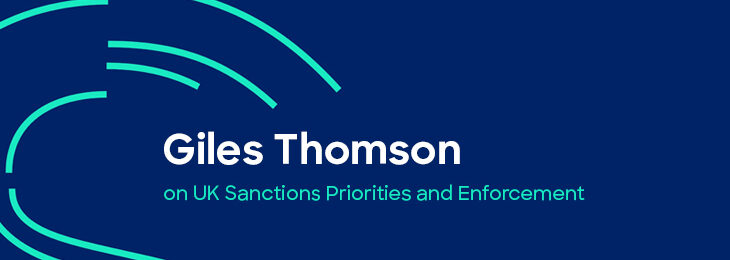
Recruiters regularly have conversations with contacts and candidates about how timing affects their job prospects. The expression timing is everything is a cliché for a reason: it is true. However, we have learned from experience that the month of the year, current and imminent holidays, and seasonal activities (for example, summer vacations or winter lulls) are not as important as personal timing. The job search has evolved immensely over the last two decades. Monster.com, CareerBuilder, and other job- and resume-posting sites were game changers. Now, we also have the omnipresence of social media, which allows us to passively be on the job market at all times. Usually in August, we see a slowdown in the interviewing process because of the vacation season; and in December, people are focusing on the holidays and preparing for the start of the New Year. However, the best time for you to go on the job hunt could be those times we have come to consider as not ideal. Ultimately, two macro-level driving forces characterize the new nature of today’s job search: first, your personal situation; and second, the degree of your activity and participation in the market.
What is your personal situation?
There was a time when job searches were all the same: we all applied in similar ways, at similar times and with similar-looking resumes. In addition, candidates had fewer modes of communication with people outside of their immediate network and fewer means of meaningful research. Today, the easy access to both modes of communication and information has personalized the job search. We are witnessing, firsthand, the first collection of generations (Generations X, Y/millennials and Z) who consider self-actualization and fulfillment just as important in a job as salary and benefits. We have the luxury and privilege to personalize our careers and jobs around our life’s philosophies and values when our parents and grandparents had to consider the practical functions, such as putting food on the table and keeping the lights on.
Our freedom and ability to contemplate our career paths and our effect on the world around us comes with the responsibility of going after what we want—the hustle. We must be thoughtful about our career progression, job choices and colleagues with whom we compete for coveted promotions. In addition, we can never forget that paying the bills and keeping a roof over our head are of paramount importance, especially as we create families and take on the responsibility of others’ wellbeing. All in all, jobs have evolved significantly to the point at which we can pick them, choose them, leave them, enjoy them and hate them for several different reasons. The Great Recession and future recessions and economic downturns will, hopefully, be the only periods of time that make the conventional necessities—money and stability—the only necessities. In healthier employment markets (especially when the unemployment rate is less than 4 percent and the U.S. economy adds 250,000 new jobs as it did in October 2018), job requirements and expectations become characteristically more dynamic than a steady paycheck. In addition, as companies mature and grow in complexity, they begin to compete for the same talent, which is a current trend in compliance and anti-money laundering (AML). For instance, the increase in demand for AML and compliance professionals results in higher salaries, higher turnover and shorter stints. As a result, shorter stints have made job-hopping less distasteful to potential employers, who are more focused on getting the work done (the topic of the gig economy stems from this combination and nexus of trends). Future generations will continue to find more fulfillment and success in moving to jobs that fit their timing, interests and brand. Demand for evermore niched and technically-skilled professionals will eventually sway the qualitative seasonal and monthly job market activity trends we have become heretofore accustomed to. The personalization of the job search becomes only more apparent when you look at how we go about it. We have so many more options and choices of activities.
The New Nature of the Job Search
The modern job search is different from what it used to be because of an evolution that can mostly be attributed to disruptive technologies over the years, such as the widespread use of the internet and the advent of social media. Applying and hiring is no longer a single and linear path that leads a candidate from resume submittal to an offer. The resume is no longer the primary focus of one’s candidacy, and a resume alone—even a pristine one—is not enough to guarantee a hiring authority will even review it. Once clicking submit, you might still imagine your resume going straight into a digital stack through which hiring professionals and recruiters are diligently sifting. The picture is not so clear anymore. The digital space has changed the traditional course and process that candidates navigate to their next position.
The modern job search is different from what it used to be because of an evolution that can mostly be attributed to disruptive technologies over the years, such as the widespread use of the internet and the advent of social media
It has never been easier to apply to open roles through online application features, such as the quick apply and one-click options. Now that the internet provides greater accessibility to broader audiences, every position and posting easily accumulates hundreds—if not thousands—of applicants in a short period of time. It is impossible for hiring professionals to have the time to thoroughly review every single applicant and, consequently, have adapted to modern circumstances by adopting new approaches to hiring. Today, candidates must be just as resourceful in how they attract attention to themselves when they compete in the digital sea of applicants.
Today, candidates must be just as resourceful in how they attract attention to themselves when they compete in the digital sea of applicants
In the modern job search, a great resume for a suitable job opening does not guarantee an interview. Today, candidates must strategize how to distinguish themselves from the crowd. Professionals seeking a new position—whether now or at some point in the future—must engage in a multitude of activities to increase their chances of success. The new nature of the job search requires all professionals to engage in proactive activities at different degrees of thoroughness, rigor and attention. This involves an online presence on job boards, an active LinkedIn profile, habitual and consistent research to stay abreast of hiring trends, and an active involvement in one’s professional community through networking events and meetups. Although submitting a well-constructed resume is a highly significant part of the job hunt, it is important to elaborate on what happens behind the scenes.
The Resume and Beyond
Are you still conflicted over whether your resume should be two pages? Believe it or not, this common concern is less relevant in today’s digital age. Many recruiters do not see the original version of your resume—not immediately, anyway. They see a consolidated jumble of HTML and highlighted words, and they usually spend less than 30 seconds sifting through converted resumes in their applicant tracking systems. Only after, will they download your originally-formatted resume or investigate further. The reality of today’s application process is that large databases collect your resume, and an applicant is left to hope a recruiter uses the same keywords and phrases.
If you have an attractive resume, you are only at the beginning of your search process. Before applying to specific jobs, think about where your resume can be visible and accessible to potential hiring managers. Many companies and recruitment agencies will establish agreements with a variety of job-board companies, such as LinkedIn, CareerBuilder, Monster.com and Indeed, to gain access to top talent. However, for candidates these sites are completely free resources that provide an expedited avenue for hiring professionals to come to you first. The more active you are, the higher the likelihood hiring managers and recruiters will notice your resume. They both tend to search based on most recent activity.
A LinkedIn profile page is now a standard expectation for any professional, and it is used by recruiters and hiring professionals to search for and research potential candidates. However, it is not enough to have a profile picture and job title posted next to your name. Your LinkedIn profile can help you develop your personal brand and online presence if you regularly cultivate and work on it. After completing your profile, do your best to ensure you have reached the 500+ connections mark. That metric is a status symbol that tells the world you are well-connected, technologically fluent and involved in your profession. If you have not reached this point, try connecting with university alumni, current and former colleagues, professional clients and other real-world network connections you have cultivated. Growing your LinkedIn network only gets easier after the initial inertia and legwork. In the end, you will show up in more searches which is the goal.
Be an active voice in your professional community by posting articles, interacting with colleagues and contributing to your network on a consistent basis. Think of ways to post useful information and support those in your network by liking posts, responding to comments and participating in discourse. The more you click around, the more LinkedIn will feed you pertinent information. More importantly, the more you post and the more likes you collect, the more you will appear on users’ feeds. Consistent activity gets you noticed by those in your network and provides a potential employer, client or connection a deeper understanding of your career interests and involvement.
While the internet provides an infinite number of ways to connect with others, nothing will ever be as valuable as a real-world conversation. Although technology increases the number of resources at your disposal, the goal has remained the same: get noticed and get in front of people. Use these tools to transform your online activity into real-world results. Classic networking events continue to bring professionals together and facilitate useful connections that could lead you to your next opportunity. Lastly, do not forget to reach out to your most trusted recruiters, search through their agencies’ job listings and explore the resources they offer. Many agencies will post hiring trends, salary guides and helpful tips on performing your job search. Research which agencies specialize in your professional field or ask connections for recruiter referrals and recommendations. Keep in mind that recruiters speak with dozens of qualified professionals every day, so meeting them in person and updating them periodically on your progress will help you stay on their radar. Their job is to represent you to their clients, and the more they get to know you professionally, the more they can speak to your experience.
Words of Wisdom
Timing—in all senses of the word—is paramount in the modern job search. However, before that time comes make sure you are diligently and consistently active. The combination of both timing and preparation will inevitably lead to the success you are seeking. We all go on the job hunt for different reasons and under circumstances that are inside and outside of our control. For your reference and for the sake of summarization, you will find below a checklist of activities and conditions you should keep in mind on a regular basis. We are not advising you to be on the job hunt all the time; rather, we encourage you to be nothing but fully invested in your current job. What’s more, this does not mean that you should not strive for a leg up within the new nature of the job search, and a basic level of immunity from the ruthlessness of recessions and the ebb and flow of hiring and layoffs, by maintaining a minimum degree of activity, participation and awareness.
Be aware of and think about:
- Your total monetary and benefits package:
- What is your current salary, bonus potential and payouts, stock options and vesting cycles, etc.?
- When is your yearly bonus paid?
- What are your compensation expectations in your next job?
- Your notice period:
- Is it the standard two weeks or does your contract state otherwise?
- Your current company’s values, mission and work culture:
- Is it changing for better or worse?
- Growth opportunities and tracks:
- Does your current company embrace your ambitions and growth?
- Can you apply to other departments and teams within the organization?
- Your current company’s fiscal and cultural condition:
- Is the company growing or shrinking?
- How is the morale?
- New employment regulations in your city and state:
- Are potential employers allowed to ask your salary history?
- What are your rights as a candidate and employee?
- New financial services compliance and legal regulations:
- How will they affect your career trajectory?
- Are you at a higher risk of personal liability?
- Can new regulations provide new career options and paths?
- Your willingness to relocate for the right position:
- Where would you relocate to?
Activities you should engage in:
- Regularly look at job-posting sites and stay abreast of hiring trends:
- Be careful about posting your resume lest your current employer finds it.
- Do you notice certain qualifications and skills are in higher demand than others?
- Complete and regularly enhance and tweak your LinkedIn profile:
- Strive for at least 500 meaningful connections.
- Proactively engage and communicate with your professional community of peers and associates.
- Network with interesting people in other industries.
- If possible, write and create professional and relevant content for your network to read and share.
- Create a strong, attractive and honest resume:
- Keep it fresh and updated. Share it with recruiters and associates you trust.
- If you are looking proactively, make sure not to saturate the job sites with your resume by applying to all the jobs you see.
- Network and build new relationships:
- Networking does not always mean going to conferences and large, formal gatherings.
- Be ready and open to meeting new people on a consistent basis.
- Stay in the “give mode” and not in the “take mode” in all social gatherings. Ask others how you can help them instead of seeking what they can do for you.
This list is not exhaustive. The job search has become so much more personal, and we cannot provide all the nuances of everyone’s needs and expectations. However, consider this a quick guide for that moment when you decide your situation calls for vigorous activity in the job market. Or, you can use this as a guide to help stay proactive in the job market without actively looking. We all only have so much control over events in our lives. In the job market and job search, make sure to be aware of what you can control and influence. Timing will be on your side.











Thank you for a very useful article! Enjoyed reading it
Very insightful and useful. Thanks for sharing.